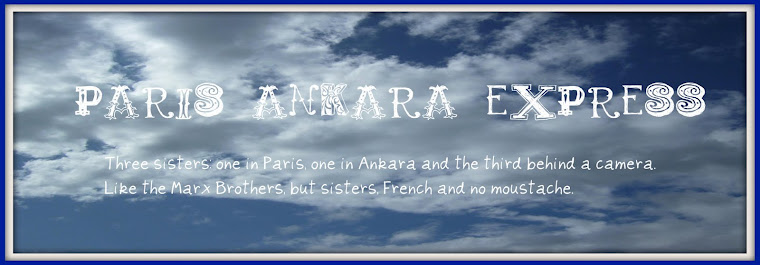I read this really interesting piece yesterday. It was about how autistic adults are forming communities, and how that surprised some people because, after all, aren't autistic people not very good at social relations? That's what the experts tell us: autistic people have trouble relating to others, they don't empathise very well, so by rights, they should always be isolated.
That brought in mind other things I'd read over the last few months. One expert telling a mother her child will never be potty trained because he wasn't at 8. Another one saying her child was simply dreamy, and that there was nothing to worry about. Both, of course, turned out to be wrong. And that's really what we should expect. Because it's very hard to be an expert at something no one really knows anything about. If being an expert means mastering the existing body of knowledge, then yes - there probably are experts in autism. But if it means having a clue what causes autism, knowing what will, without a doubt improve the learning abilities of a child, make him or her more comfortable with the world around, then no, there aren't any.
Of course there are lots of people with plenty of experience, who don't claim to know anything for certain, but generally have a pretty good instinct of what's going to work or not with a particular child. And if something 's not working, they usually have no problem giving up and trying something else. That is certainly the case with the teachers at Max's autism centre. Yet, they're young, and they can't have studied for more than a few years for the qualifications they need to work here. Their experience must be limited: I don't suppose most of them have worked for more than five years or so. But they work hard. Within a day, they see many children. And they work intensively. They pick up on one child's needs very quickly. They establish a relationship, not just with the child, but with the parents and the school teachers. They're not experts, they're exceptional people.
As to the psychologists, the neurologists, the child psychiatrists who claim to be experts - well, they certainly don't have that kind of experience. Nor do they have a clear grasp on what it is they're supposed to be experts about. Is autism a neurological condition, is it psychological? Does any one even know what that distinction really is about? According to us philosophers (who of course know everything!), neither the neurologists nor the psychologists really know what they are talking about, that is, they're very good at studying the bits of brains or human reactions they look at, but it's not very clear how and why they think any of that relates to what goes on in any one's mind or heart.
The psychiatrists and neurologists are also those people who, forty years ago, would have blithely recommended you put your child in an institution and forget about them - or failed to recognise their autism altogether. Autism is in many ways a newly discovered condition, and as such, it's not clear to me that any one should really constitute themselves experts. There just hasn't been time to build up a decent body of knowledge or to learn about its applications. Any study that we actually might trust and that is not built on antiquated prejudices about autism is bound to be very new. Basically, we won't know the results until another decade or so. So when people make claims about what works and what doesn't work with autism... they're either basing them on very short studies or making confident predictions. In any case, that's no what scientific expertise is supposed to be about, so I stick to my guns: there are no autism experts.
So I'm always much more inclined to ask the advice of one of the teachers at the centre than that of an eminent sometingist who has no experience working with autistic children. And I don't think anyone should let themselves be upset by what a so-called expert says. There are people who's business is to make you feel small in order to make themselves feel important. And you shouldn't feel small. No one spends as much time and energy on your child as you do. As far as the only expertise available to us - experience - is concerned, you are the expert. I'm certainly not saying you shouldn't pay attention to what anybody else says: there are some very good professionals with invaluable information and skills, people with experience, people who've devoted their lives to helping kids like yours. But these won't be claiming expertise. They won't be putting you down, or minimising the importance of your instinct and experience.
Oh, one last thing. If you liked this post, would you mind terribly clicking on the RSS feed, here, or the Google connect buttons (top left)? And if you didn't like it, you might still want to look around. There's three of us, you know, so you're (almost) bound to find something you like. And then, if you've still got time, you could share this post or stumble it, or both and get in touch with your local tv station to sing our praises. We'll love you forever.


2 comments:
PML at "somethingist". The world is full of 'em.
Wise words indeed.
XXX
Yeah. Let's you and me kick their arses!
Post a Comment